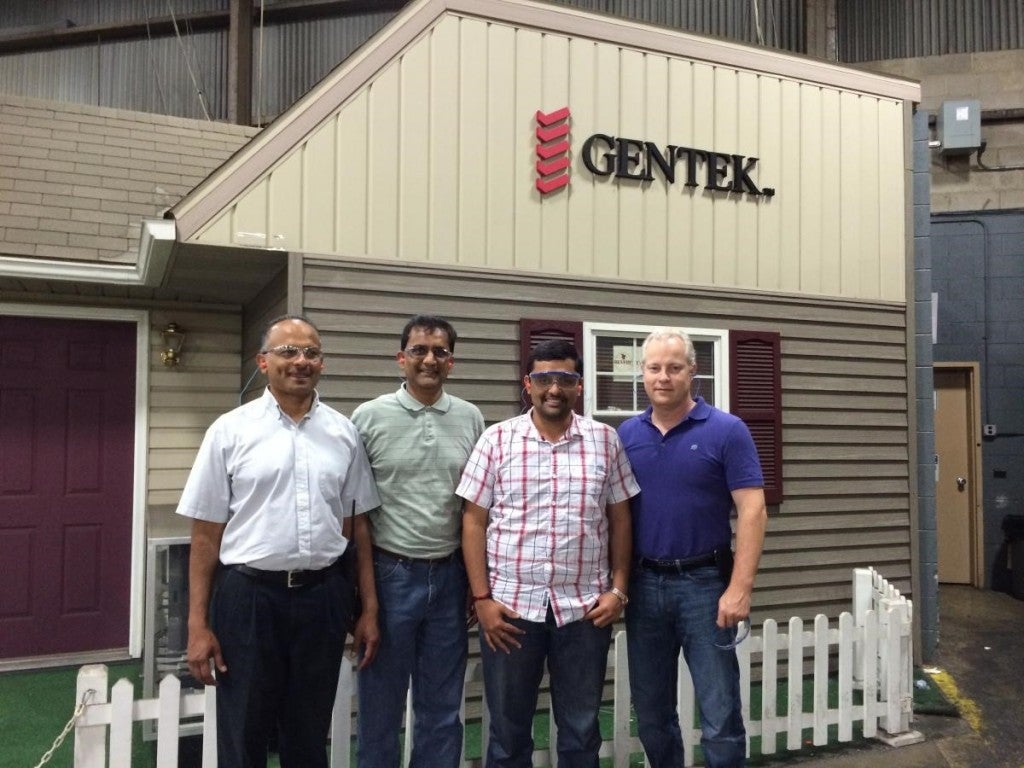Changing Light Bulbs Can Mean a Wealth of Energy Savings
By: Karunakaren MH, student at the Thunderbird School of Global Management
 A few months ago, I traveled halfway across the world from the bright, hot tropical beaches of south-east Asia into a gloomy, chilly Chicago summer to begin my journey as an EDF Climate Corps fellow. A week before I started at Associated Materials, a thunderstorm flooded the entire ground floor of the corporate office, and the place needed to be completely restored. What a cliché! Because of how quickly they recovered, I arrived at the office knowing that its resilience to adversity and commitment to energy efficiency goals would mean I had a great summer ahead of me.
A few months ago, I traveled halfway across the world from the bright, hot tropical beaches of south-east Asia into a gloomy, chilly Chicago summer to begin my journey as an EDF Climate Corps fellow. A week before I started at Associated Materials, a thunderstorm flooded the entire ground floor of the corporate office, and the place needed to be completely restored. What a cliché! Because of how quickly they recovered, I arrived at the office knowing that its resilience to adversity and commitment to energy efficiency goals would mean I had a great summer ahead of me.
Associated Materials (AMI) is a vertically integrated company in the exterior building products industry with 11 manufacturing locations and over 120 distribution centers catering to the North American market. It spends about $15 million annually on energy utilities and, this summer, hired two EDF Climate Corp fellows to look for opportunities to reduce energy costs. I worked on the manufacturing locations and my colleague, Vinnakota Krishna, looked at the supply centers.
The Potential for LEDs
I visited my first manufacturing location in West Salem, OH during the second week of my fellowship. The drive took me through the scenic Cuyahoga National Park, one of the many beautiful parks in the area, and it reminded me of what I was trying to protect. With this resolve, I performed a walkthrough of the plant and was able to identify huge opportunities for energy savings through LED lighting retrofits, and a complete lighting engineering survey was performed as well.
The results of the survey identified a potential savings of 1.78 million kilowatt hours if AMI did a complete retrofit of the plant with LED lights along with occupancy sensors. The highlight of this solution was the rapid financial return with payback periods of less than two years. This is much quicker than the average rate of return for an LED retrofit. As expected, the upfront costs were three times more expensive compared to using fluorescent bulbs but looking at it from a long term perspective, this was a very sound investment that could bring in savings of $1.7 million over the next 10 years.[Tweet ““The complete LED retrofit of the plant could bring in savings of $1.7 million.” – Karunakaren MH, CPP fellow @EDFBiz”]
A similar survey of an LED retrofit at another location also identified potential annual savings of over 1 million kWh, and for this project, the payback could be reduced from 27 months to 22 months with the help of utility rebates of more than $72,000.
Financing LED Retrofits with a Sustainability Fund
These solutions are alluring and the company remains committed to implementing these projects but faces an uphill battle of competition for limited capital. Although energy efficiency projects provide a healthy return on investment, they always play second fiddle to other business related investments that create revenues. In a conversation with the VP of Operations, I suggested AMI create a Green Energy and Sustainability Fund that would help level the playing field for these energy projects where AMI could pool the returns from the already instituted efficiency projects to help completely fund or augment the capital requirements of such projects in the future. He was excited by the idea and remarked that this was practicable.
Finally, as I approach the end of my EDF Climate Corps fellowship, I am happy to look back at the many wonderful experiences that I have had. I set the ball rolling by providing Associated Materials with the numbers and analysis needed to improve the bottom line, while also becoming more sustainable. I am excited to see how they will use this information to their advantage in the coming years.
This post originally appeared on our Climate Corps blog.










